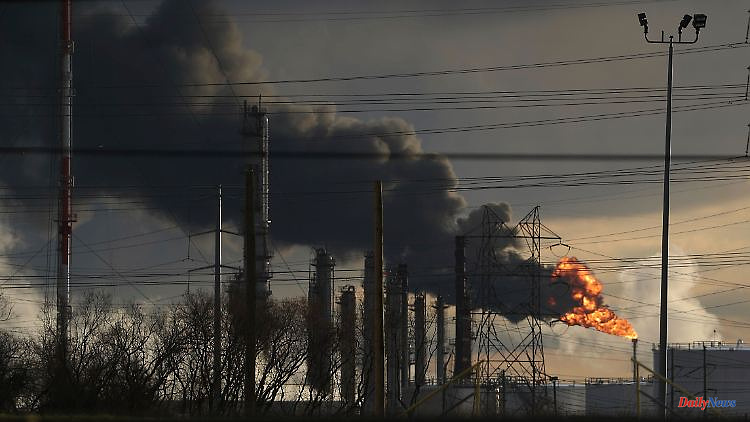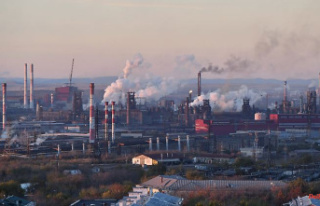The US energy company Exxon Mobil posted a new record profit last year. In view of the sharp rise in oil prices, the US giant takes in around 59 billion dollars. While Exxon is in a legal dispute with the EU, the high profits are also causing criticism in their own country.
The American energy giant Exxon Mobil made a record profit of 59 billion dollars (54.5 billion euros) thanks to the high oil prices last year and thus earned 6.7 million dollars (6.2 million euros) an hour in purely mathematical terms. CFO Kathryn Mikells doesn't think much of an excess profit tax. This levy is the result of "bad policies," she said.
Exxon has already filed a lawsuit against the EU over the new tax, which cost the US giant around $1.3 billion in the fourth quarter. From the point of view of the energy company, the EU is exceeding its legislative powers with the excess profit tax that has been passed. The authority in Brussels recently countered that the measures in question were fully compatible with EU law.
Exxon set a new record for Western oil companies with its adjusted annual profit of $59 billion. Experts expect the multinationals to post annual profits of almost $200 billion in 2022 thanks to high prices after the Russian invasion of Ukraine and brisk demand.
Exxon itself was able to break its previous annual record of $45.2 billion from 2008. Since then, the group has cut costs in order to further increase its profitability. CFO Mikells said earnings and cash flow were significantly higher than last year. The record profits could, however, also cause new debates in the USA. Only on Friday did the US government criticize companies in the industry that invested their profits in distributions to their shareholders and not in new energy projects. Excess profit taxes would ensure that the industry puts less money into developing new gas and oil fields, Mikells said now.












